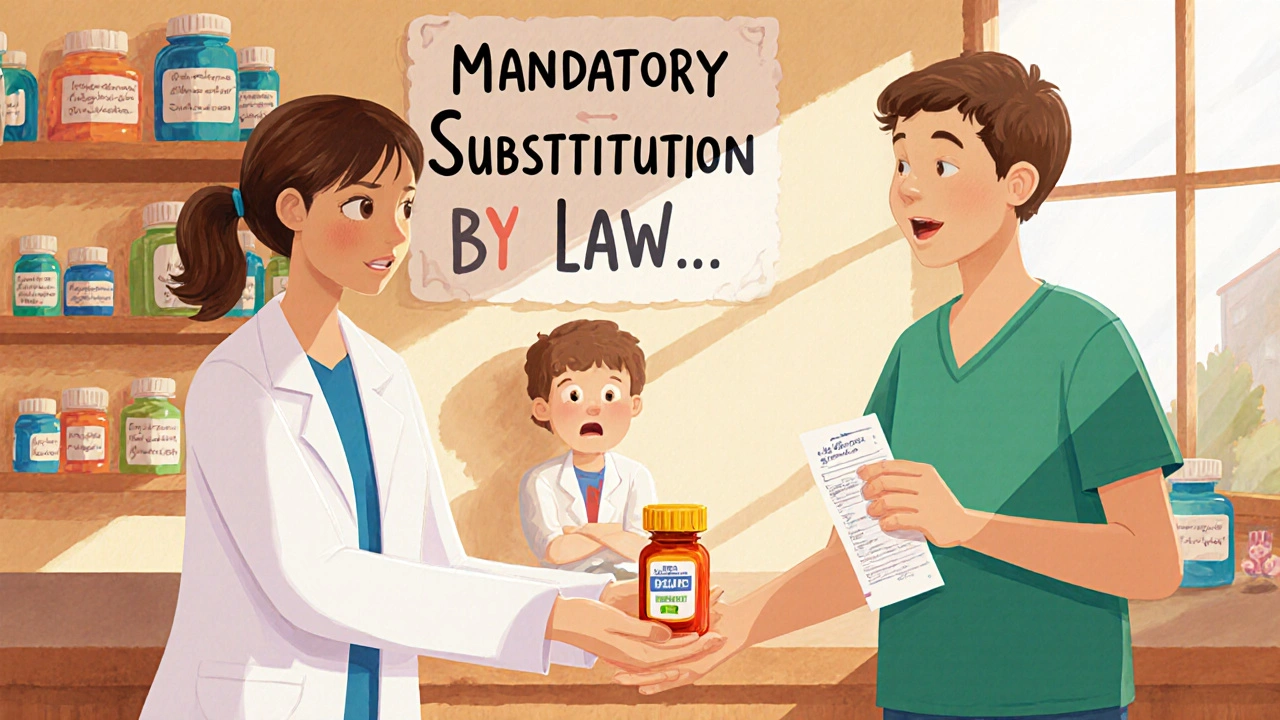State Pharmacy Laws: What You Need to Know About Prescription Rules by State
When you walk into a pharmacy, you might think the rules are the same everywhere. But state pharmacy laws, the local rules that control how medications are dispensed, stored, and tracked across the U.S.. Also known as pharmacy regulations, they're set by each state's board of pharmacy and can change everything from how long a prescription lasts to whether you can buy naloxone without a doctor’s note. These aren’t just paperwork—they directly impact your access to medicine, your out-of-pocket costs, and even your safety.
Every state has its own version of state board of pharmacy, the official body that enforces rules on pharmacists, pharmacies, and prescription handling.. In some states, pharmacists can switch a brand-name drug to a generic without asking you first. In others, they must get your okay. Some let you refill certain controlled substances early if you’re traveling. Others won’t allow it under any circumstance. And while federal law sets the baseline for controlled substances, drugs like opioids, stimulants, and sedatives that carry abuse risk and require strict tracking., each state adds its own layer—like mandatory prescription drug monitoring programs (PDMPs), which track who’s getting what, and when.
These differences aren’t random. They come from real problems: opioid overdoses in one state led to tighter rules on pain meds. In another, rural communities pushed for rules letting pharmacists give out birth control without a prescription. The result? Two people with the same condition might face completely different rules just by living in different zip codes. That’s why knowing your state’s laws matters—not just for pharmacists, but for you. It helps you understand why your refill was denied, why your insurance won’t cover a certain generic, or why you can’t buy pseudoephedrine without showing ID.
Looking at the posts here, you’ll see how these laws connect to real-world issues: how insurers pick generics, why some drugs get denied, how patients manage chronic conditions under strict controls, and even how online pharmacies operate legally. You’ll find guides on everything from warfarin to ED meds, all shaped by the patchwork of state rules that govern how those drugs reach you. Whether you’re a patient, a caregiver, or just trying to understand why your pharmacy won’t do something another one will, this collection gives you the context you need to navigate the system—without guessing.
Mandatory vs Permissive Substitution: How State Laws Shape Generic Drug Access
- Beata Staszkow
- |
- |
- 12
Mandatory and permissive substitution laws determine whether pharmacists must or can switch brand-name drugs to generics. These state-level rules impact drug costs, adherence, and patient safety - with big differences across the U.S.
View more
